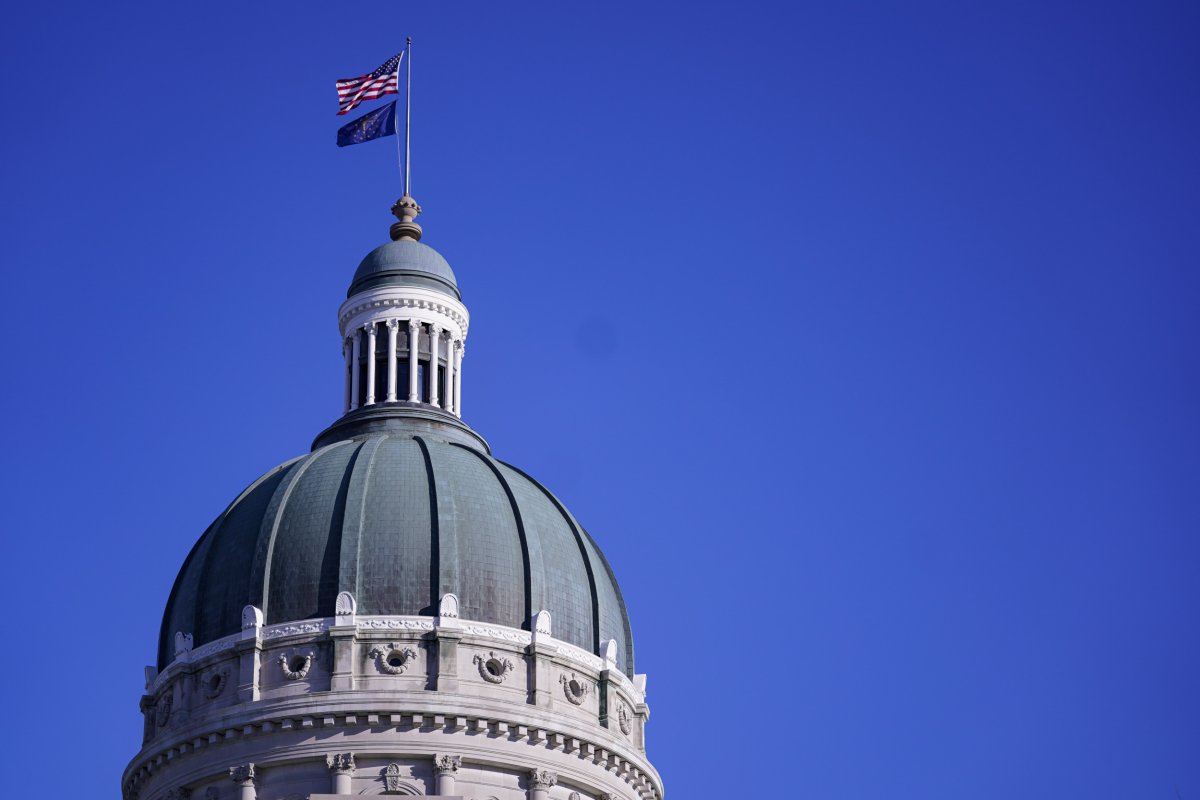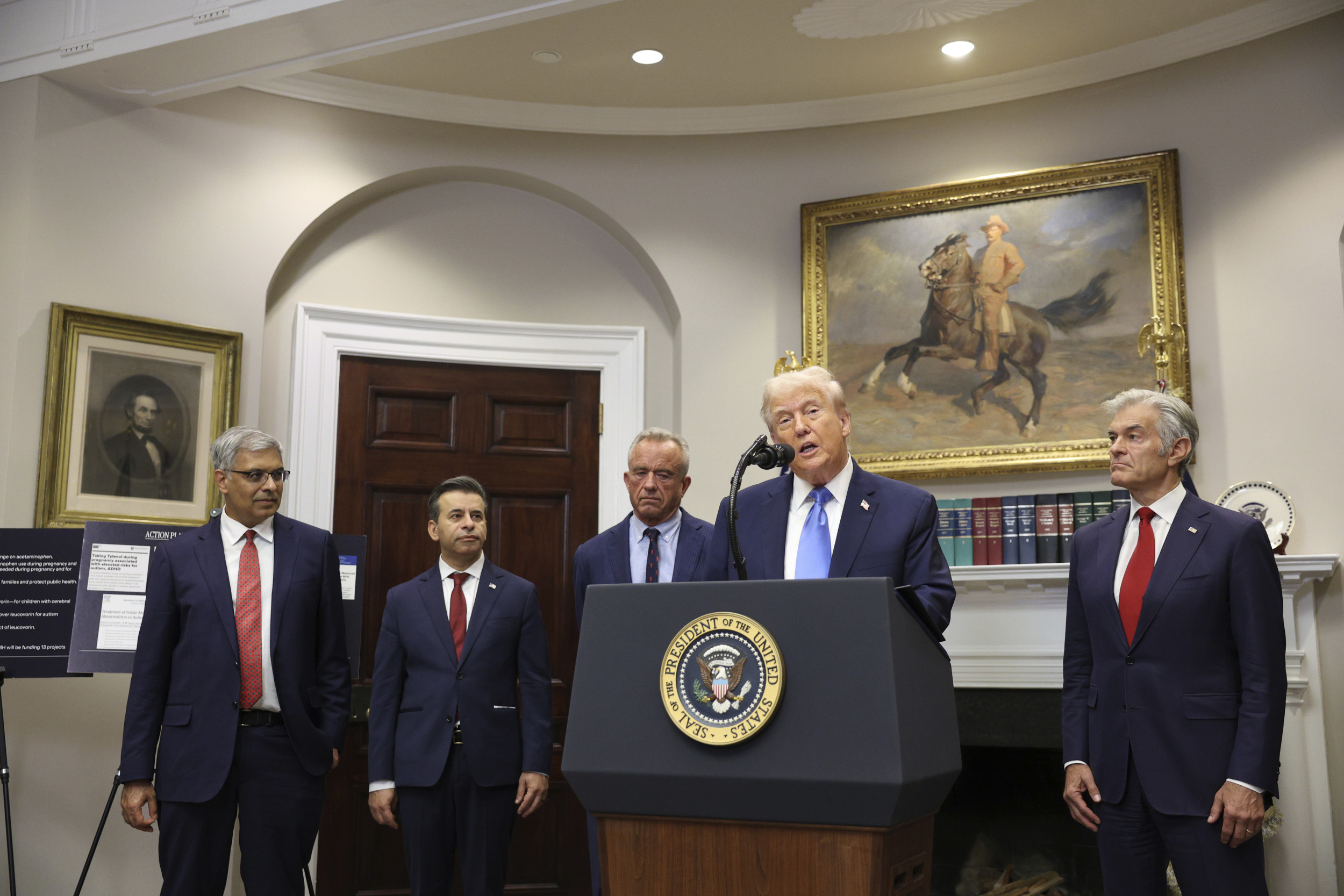
Indiana could get bigger and take on Illinois counties that have voted to leave their state, after Indiana Governor Mike Braun appointed five members of a commission to look into this.
The Indiana-Illinois Boundary Adjustment Commission, tasked with assessing how Indiana could go about accepting Illinois counties, was created in April, after state lawmakers approved House Enrolled Act 1008.
Braun signed the bill into law the next month and, on Tuesday, he announced in a press release the first five people who will serve on the commission.
Newsweek has contacted Braun and Illinois Governor JB Pritzker via email for comment.
Why It Matters
The proposal has reignited questions about legal and fiscal hurdles: changing state borders would require approval from both state legislatures and the U.S. Congress.
Some 33 Illinois counties have approved advisory referenda since 2020 asking to leave Illinois, meaning significant changes to both states.
Under the U.S. Constitution, any change to state borders requires the consent of the state legislatures involved and of Congress.
What To Know
Calls for secession have been growing since the 2020 election. In February 2023, House Republican Marjorie Taylor Greene sparked widespread discussion when she called for a “national divorce” that would see the U.S. “separate by red states and blue states and shrink the federal government.”
Some Illinois residents, particularly from rural or conservative-leaning counties, are seeking to join Indiana because they argue that Illinois’ higher taxes, political climate, and urban-centric policies, which favor cities like Chicago, do not align with the interests of rural communities.
These people believe that joining Indiana, which they see as having lower taxes, a friendlier business environment, and policies more suited to their values, would be more beneficial for their economic well-being and quality of life.
Critics worry that taking on the Illinois counties will hinder Indiana’s budget for services such as public education and Medicaid, several economists told the Indianapolis newspaper The Indy Star.
Braun said the Indiana-Illinois Boundary Adjustment Commission is required to hold its first meeting by December 1.
He appointed Republican public accountant Greg Newman of Posey County, retired Republican state representative and cattle farm owner Don Lehe of White County and Republican farmer Clay Andrews of Warren County, who serves as a Warren County Commissioner.
Braun also appointed Jeff Papa of Boone County, a Republican chief of staff and general legal counsel for the Indiana State Senate, and Ray McCammon of Sullivan County, a Democrat Sullivan County Commissioner.
House Enrolled Act 1008 states that the commission can also have five members from Illinois “appointed under Illinois law.”
But the Democratic-dominated Illinois legislature has not approved a companion piece of legislation, laying out how its members would be chosen, according to the IndyStar.
In January, Illinois Governor JB Pritzker called the bill a “stunt” and told reporters that counties joining Indiana is “not going to happen.”
But House Enrolled Act 1008 says no more than six appointments are required for the commission to conduct business, meaning work could start without any Illinois representation.
No more than four people in this subdivision can be from the same party, meaning the sixth person will be a Democrat.

AP
What People Are Saying
Illinois Governor JB Pritzker told reporters in January: “It’s a stunt. It’s not going to happen. I’ll just say Indiana is a low-wage state that doesn’t protect workers, a state that does not provide health care for people when they’re in need, and so I don’t think it’s attractive for anybody in Illinois where wages are higher where the standard of living is higher, and we do provide health care for people in need.”
Indiana’s Speaker of the House, Todd Huston, sponsor of the House Enrolled Act 1008, previously told reporters that it was Illinois counties’ “choice whether they want to participate or not.”
“I think it’s been a great opportunity to talk about all the great things going on in Indiana and to say, ‘We’d love to have that conversation,'” he said.
What Happens Next
The commission must hold an initial meeting by December 1. If it recommends boundary changes, any alteration would still require approval by both state legislatures and by Congress under Article IV, Section 3 of the U.S. Constitution.
Practical progress may be limited because Illinois has not enacted companion legislation to fill its five commission slots.
Questions remain about fiscal impacts and legal feasibility; if and when the commission reports its findings to Indiana’s governor and legislature, lawmakers will face decisions about whether to pursue negotiations that Illinois is unlikely to accept.




